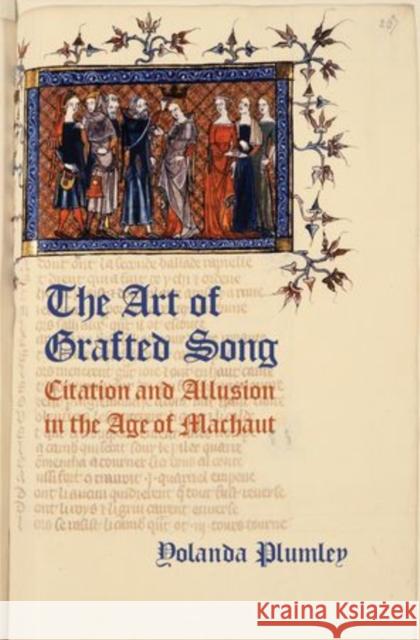Art of Grafted Song: Citation and Allusion in the Age of Machaut » książka
topmenu
Art of Grafted Song: Citation and Allusion in the Age of Machaut
ISBN-13: 9780199915088 / Angielski / Twarda / 2013 / 496 str.
Art of Grafted Song: Citation and Allusion in the Age of Machaut
ISBN-13: 9780199915088 / Angielski / Twarda / 2013 / 496 str.
cena 479,96 zł
(netto: 457,10 VAT: 5%)
Najniższa cena z 30 dni: 461,87 zł
(netto: 457,10 VAT: 5%)
Najniższa cena z 30 dni: 461,87 zł
Termin realizacji zamówienia:
ok. 30 dni roboczych
Bez gwarancji dostawy przed świętami
ok. 30 dni roboczych
Bez gwarancji dostawy przed świętami
Darmowa dostawa!
Just as our society delights in citations, quotations, and allusions in myriad contexts, not least in popular song, late medieval poets and composers knew well that such references could greatly enrich their own works. In The Art of the Grafted Song: Citation and Allusion in the Age of Machaut, author Yolanda Plumley explores the penchant for borrowing in chansons and lyrics from fourteenth-century France, uncovering a practice integral to the experiments in form, genre, and style that ushered in a new school of lyric.
Working across disciplinary boundaries, Plumley traces creative appropriations in the burgeoning "fixed forms" of this new tradition to build a more intimate understanding of the shared experience of poetry and music in the generations leading up to, and including, Guillaume de Machaut. Exploring familiar and less studied collections of songs as well as lyrics without music, this book sheds valuable light on the poetic and musical knowledge of authors and their audiences, and on how poets and composers devised their works and engaged their readers or listeners. It presents fresh insights into when and in which milieus the classic Ars nova polyphonic chanson took root and flourished, and into the artistic networks of which Machaut formed a part. As Plumley reveals, old songs lingered alongside the new in the collective imagination well beyond what the written sources imply, reminding us of the continued importance of memory and orality in this age of increasing literacy. The first detailed study of citational practice in the French fourteenth-century song-writing tradition, The Art of Grafted Song will appeal to students and scholars of medieval French music and literature, cultural historians, and others interested in the historical and social context of music and poetry in the late Middle Ages.










